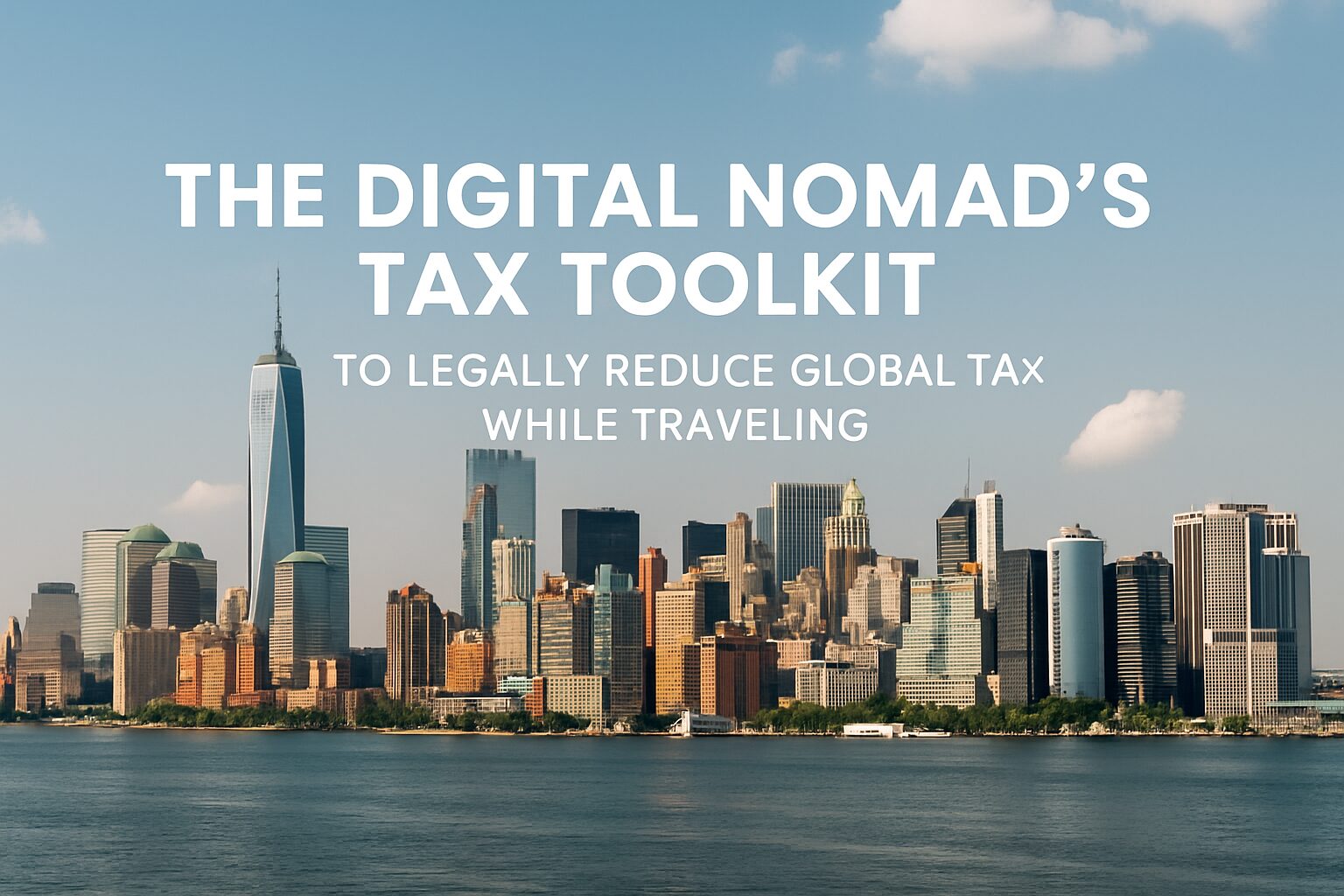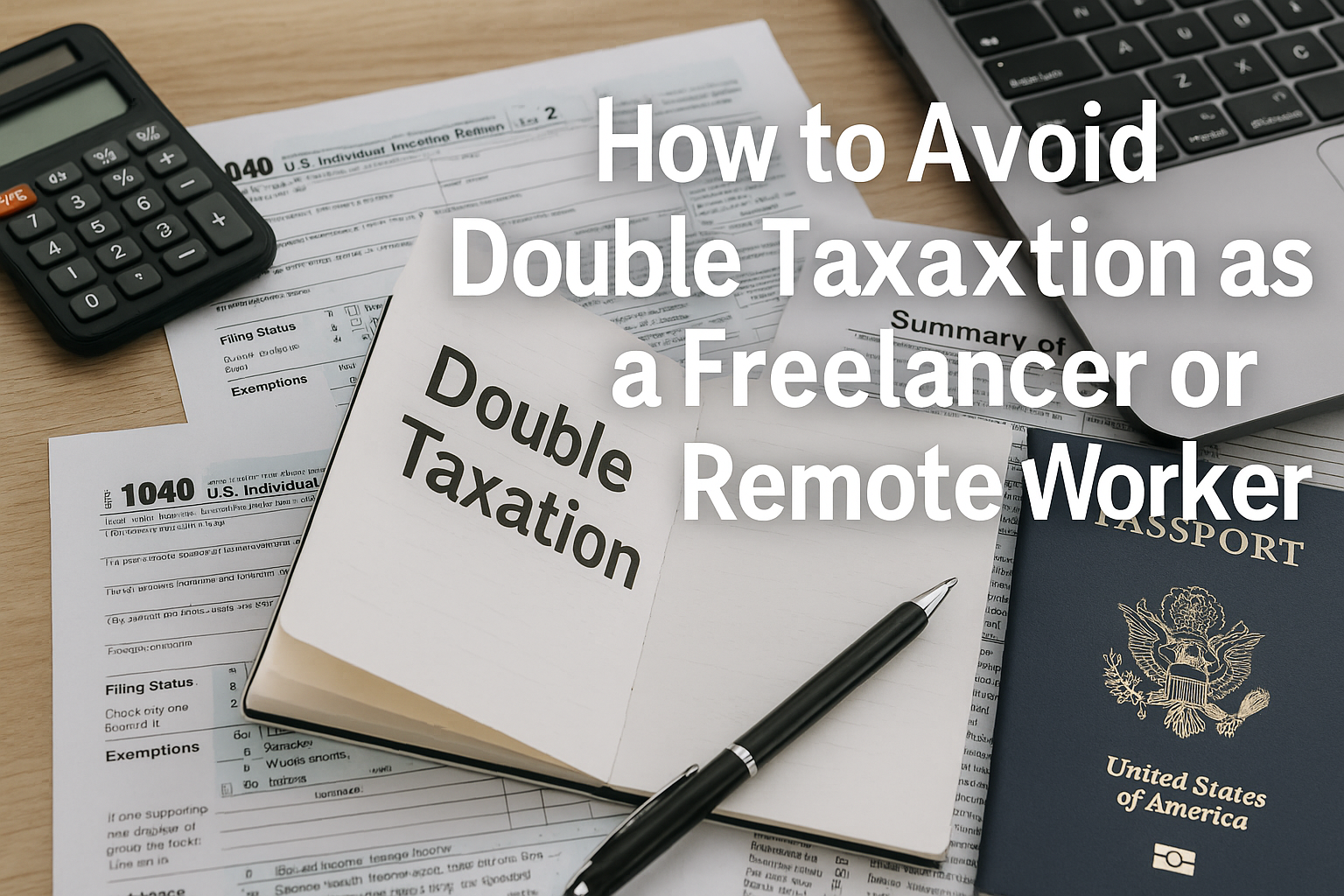How to avoid mistakes, save on taxes, and stay compliant from day one
For many immigrant freelancers and digital side hustlers, tax season can feel like walking through a minefield. From understanding self-employment taxes to filing as a visa holder, the rules can be confusing and intimidating. But it doesn’t have to be.
This guide will break down everything you need to know—step by step—so you can stay compliant, avoid overpaying, and file with confidence.
1. Understand Your Tax Status as a Non-Citizen
Not all immigrants are taxed the same way. Your tax status depends on your visa type, how long you’ve stayed in the U.S., and whether the IRS considers you a resident or nonresident alien.
- Resident Alien: Typically taxed like U.S. citizens on worldwide income.
- Nonresident Alien: Taxed only on U.S.-sourced income, often with different forms like 1040-NR.
Use the Substantial Presence Test (SPT) to determine your status.
2. Know What You Need to Report
As a freelancer or side hustler, you must report all income—even from overseas clients or platforms like Upwork, Fiverr, or PayPal.
- Self-employment income: Subject to both income tax and self-employment tax.
- Cryptocurrency earnings: Must be reported, even if held abroad.
- Platform income: Check Form 1099-NEC or 1099-K from services you use.
3. Choose the Right Tax Forms
Here’s what most immigrant freelancers typically use:
- 1040: If you’re a resident alien.
- 1040-NR: If you’re a nonresident.
- Schedule C: To report income and expenses from self-employment.
- Schedule SE: For calculating self-employment tax.
4. Deduct What You Can (Legally)
One of the best benefits of freelancing is the number of deductions available. These reduce your taxable income.
Examples:
- Home office expenses
- Laptop and software tools
- Business travel
- Phone bills related to your work
- Website or hosting costs
Keep receipts and organize expenses monthly.
5. Avoid Common Mistakes That Trigger Audits
Immigrant freelancers often get flagged for simple errors like:
- Using the wrong filing status (e.g., claiming Head of Household incorrectly)
- Failing to report foreign income
- Taking exaggerated deductions without backup
Tip: Use trusted software like TurboTax, or work with a tax professional familiar with immigration issues.
6. Should You Incorporate?
Incorporating your freelance business (LLC or S-Corp) may offer tax savings and protect personal assets—but it’s not always necessary.
You should consider it if:
- You’re earning over $50,000/year
- You want to deduct health insurance or retirement savings
- You plan to grow a personal brand or hire help
Visa holders must be cautious—some visa types prohibit active management of a business.
7. Don’t Miss Tax Deadlines
Typical deadlines to keep in mind:
- April 15: Federal tax return deadline.
- Quarterly estimated taxes: Due April 15, June 15, September 15, and January 15 of the following year.
- Extension: File Form 4868 if you need more time.
8. Use IRS Tools and Resources
The IRS provides tools specifically for international filers:
- IRS Free File for simple returns
- Taxpayer Advocate Service for help with delays
- Publication 519 (U.S. Tax Guide for Aliens)
9. What to Do If You Filed Incorrectly
Mistakes happen. If you’ve underreported income or filed the wrong form:
- File an amended return (Form 1040-X)
- Correct your residency status if needed
- Seek help before the IRS contacts you
Conclusion
Filing taxes as an immigrant freelancer doesn’t have to be scary. With the right knowledge and tools, you can stay compliant, reduce your tax burden, and focus on what matters—building your freelance income and future.
📌 Coming Up Next
“The Digital Nomad’s Tax Toolkit – How to Legally Reduce Global Tax While Traveling”
→ Learn how to structure your freelance business, use international tax treaties, and set up the right entity to save thousands legally.


